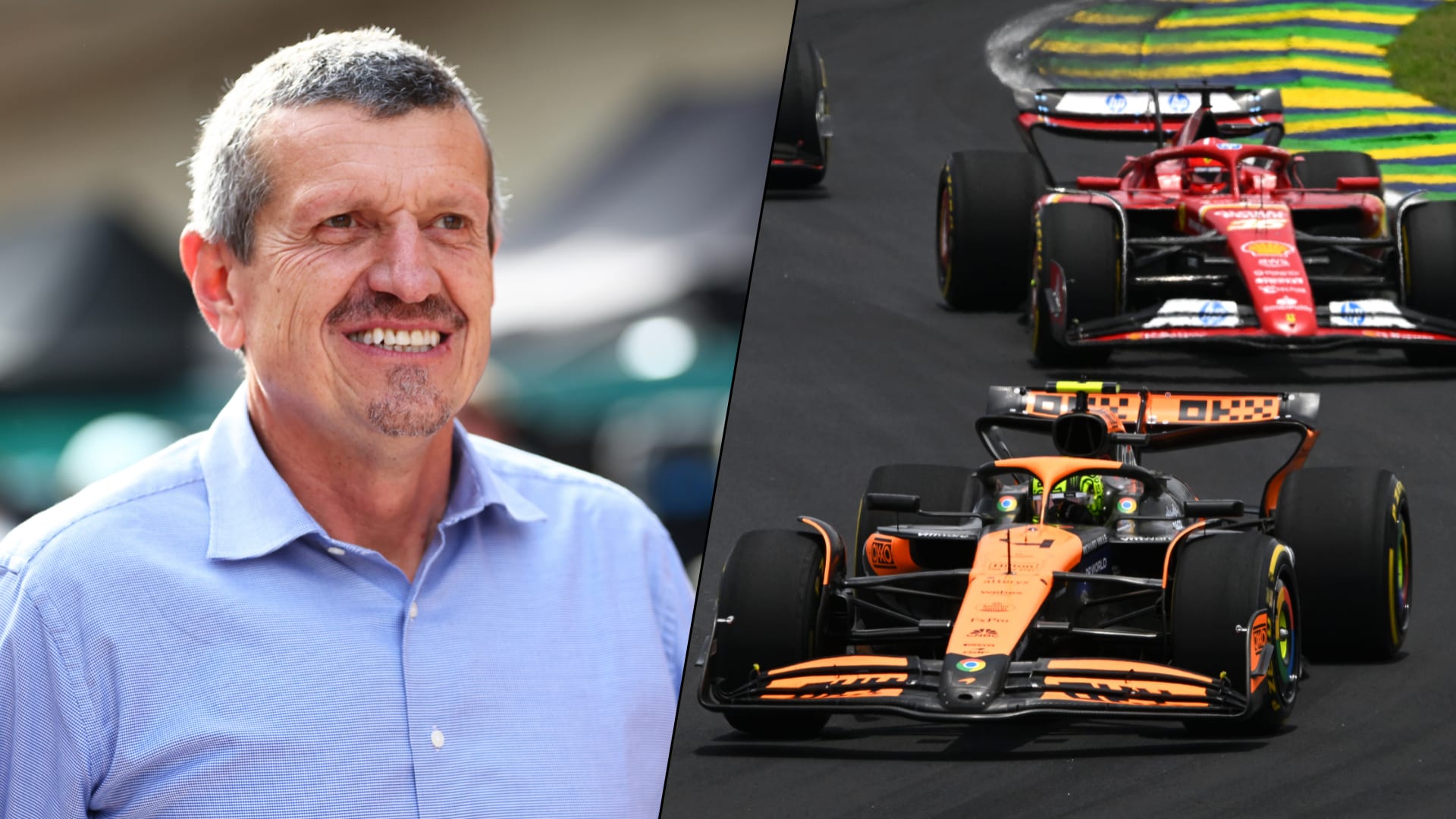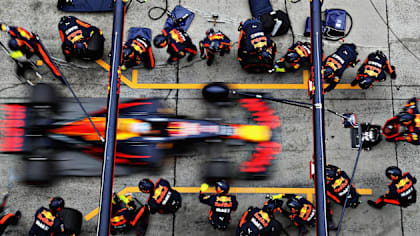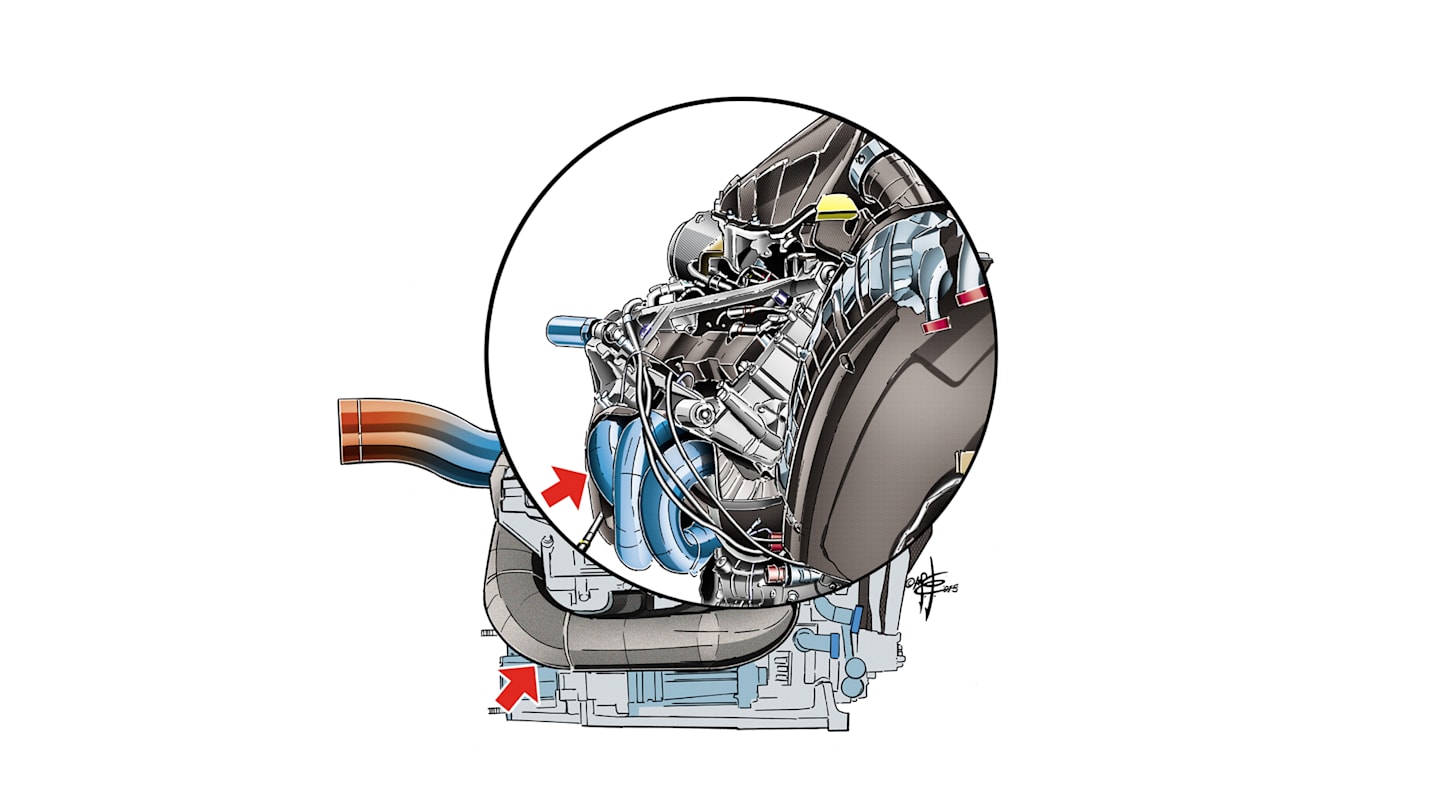
Technical
Technical analysis - pre-Mexico round-up
Share

The 2015 Formula One season may be entering its final phase, but that doesn’t mean teams are letting up on their development efforts. Here we take a look at some of the most interesting details from last weekend’s round in Austin, the first part of a double header with this weekend’s race in Mexico…
McLaren MP4-30 - Honda’s upgraded power unit
Finally in the United States we got to see the shape of the engine exhausts on Honda’s improved power unit, introduced at the previous Grand Prix in Russia and tested again by Fernando Alonso in Texas (team mate Jenson Button hopes to have the update in Mexico). No longer are the exhausts all included in one short collector manifold (bottom arrow). Instead they now have a more standard layout (top arrow) in order to improve the engine’s power curve.
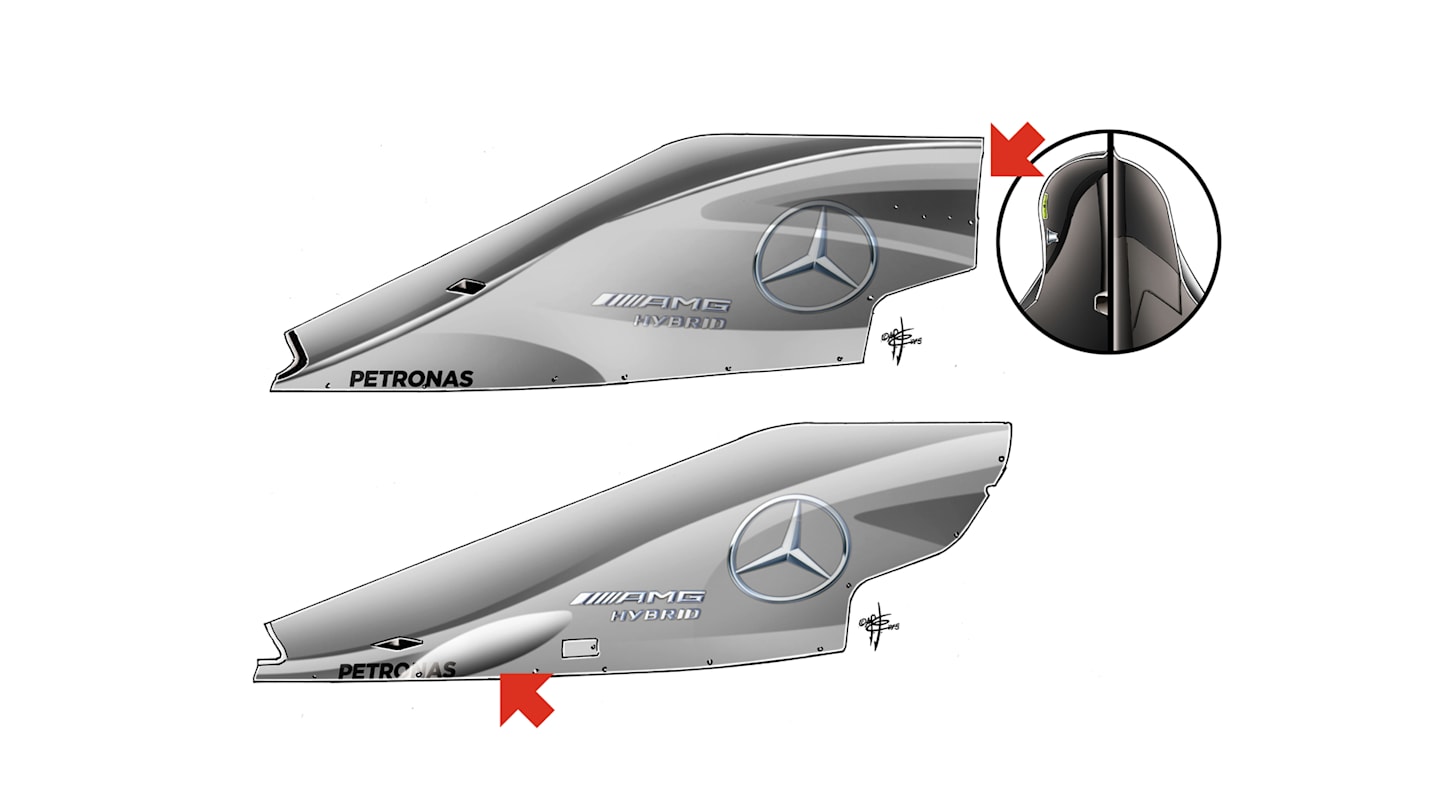
© Giorgio Piola
Mercedes F1 W06 Hybrid - engine cover updates
In Austin Mercedes introduced two ‘ears’ on the side of the airbox (top arrow and left inset) to improve the cooling of the car’s Energy Recovery System (ERS). This will allow the team to run its MGU-H at higher revs in Mexico, in order to combat the negative effects of altitude - Mexico City is over 2,200m above sea level - on engine power. There was also a change to the lower part of the engine cover, with the pronounced bonded section (bottom arrow) covering the ERS cooler removed, thanks to the cooler now being narrower but higher.
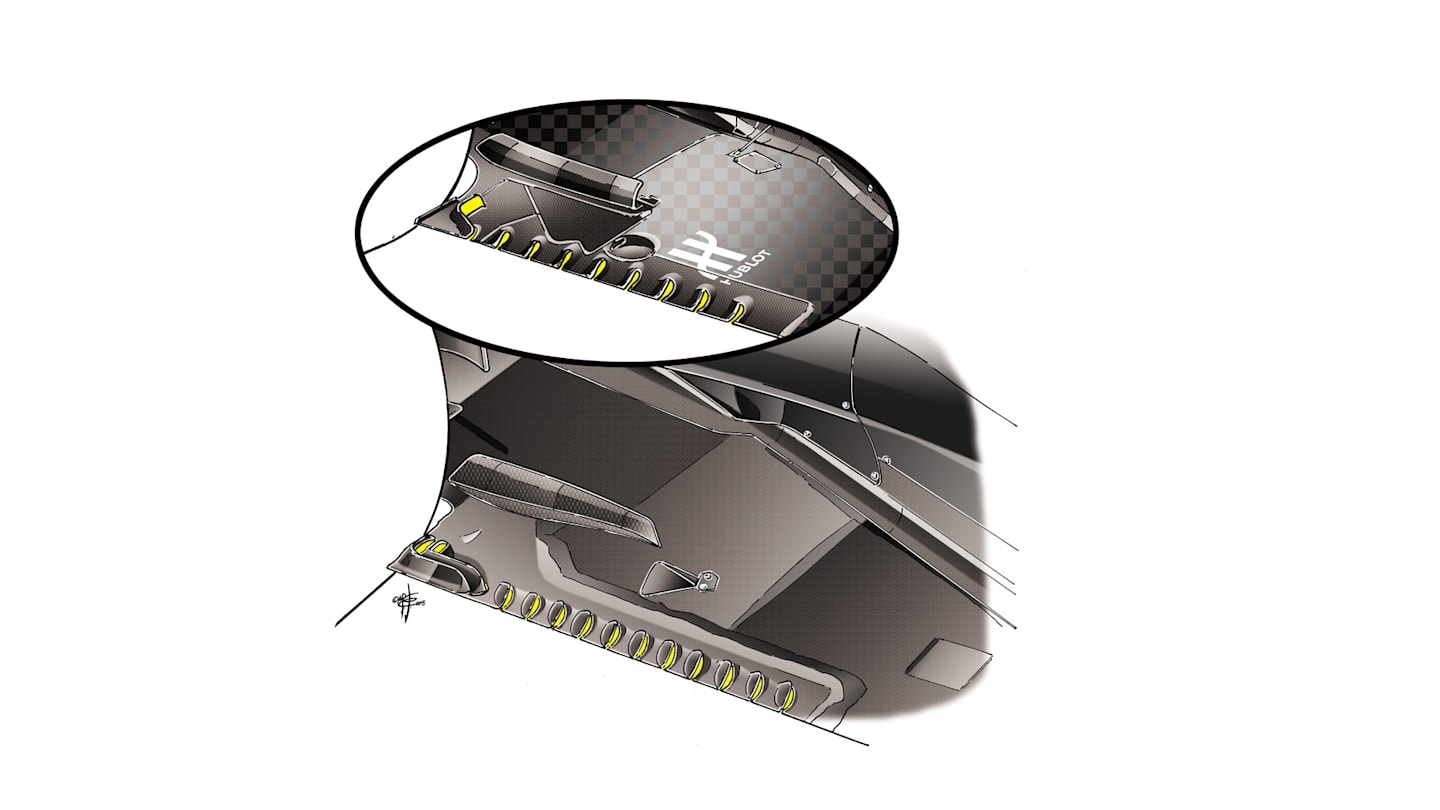
© Giorgio Piola
McLaren MP4-30 - rear floor slots
McLaren have followed Ferrari’s lead (inset shows the Italian team’s solution) and introduced multiple slots in the floor in front of the rear wheels. This is in order to reduce the negative influence of turbulence in this area of the car, improving the aerodynamic efficiency of the rear diffuser and thus boosting downforce.
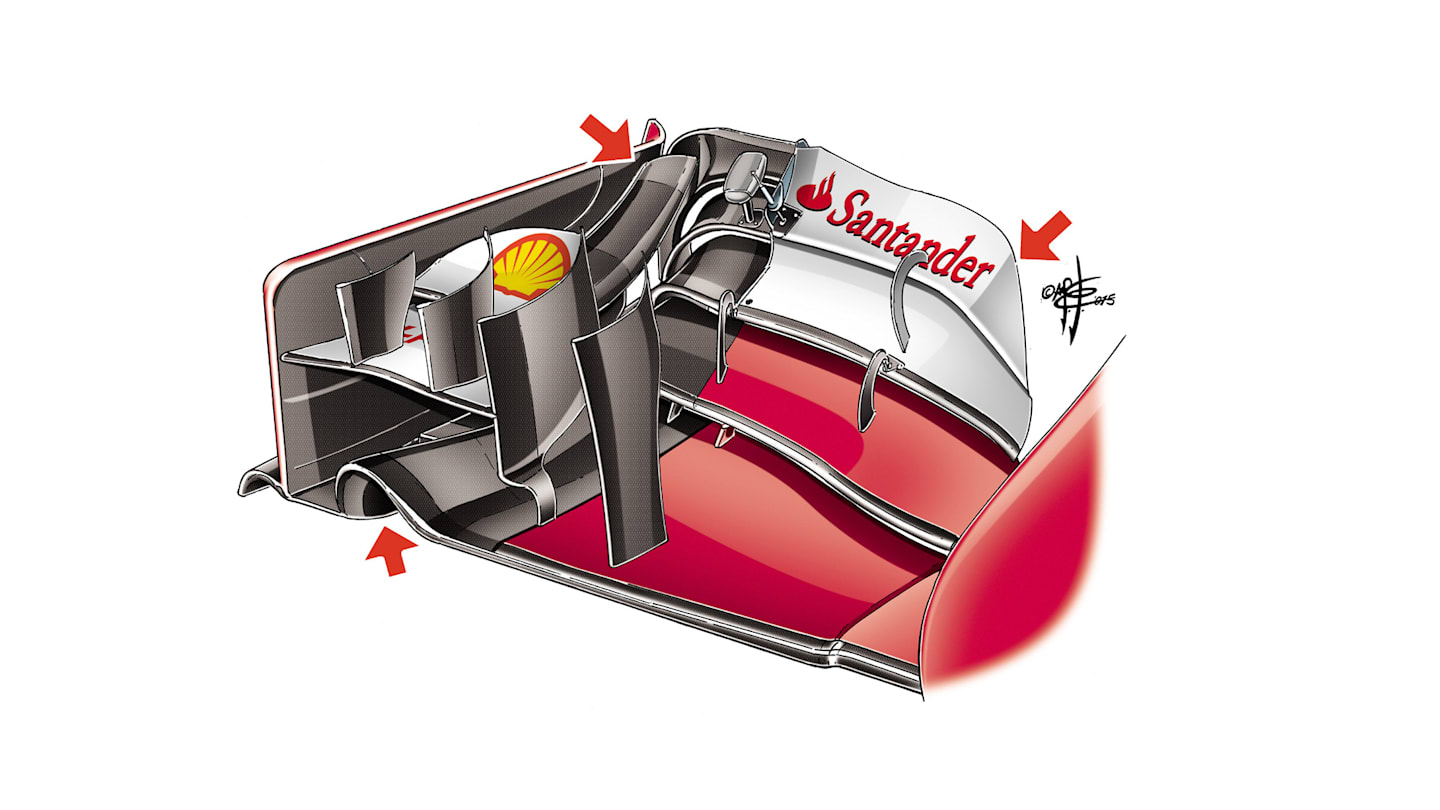
© Giorgio Piola
Ferrari SF15-T - front wing updates
In Austin Ferrari debuted a front wing different in various parts of its design, initially on just Sebastian Vettel’s car, but then on Kimi Raikkonen’s too. The main plane has a more angled and twisted shape just before the horizontal section close to the endplate (bottom arrow), while just inside the endplate (top left arrow) there is long, angled fin like the one introduced by McLaren last year and since adopted by Mercedes. The wing’s final rear flap (top right arrow) also has a new shape compared to the previous design. The performance of the SF15-T was such that Vettel finished the US race barely three seconds down on the winning Mercedes of Lewis Hamilton.
YOU MIGHT ALSO LIKE
News Hamilton opens up on developing relationship with 'massively talented' Leclerc
FeatureF1 Unlocked Palmer’s pre-season pecking order: Who’s looking good for 2025 after winter testing?
News Newey embarks on his first official day at Aston Martin
Feature Anatomy of a pit stop: How do F1 teams service their cars in less than two seconds?
